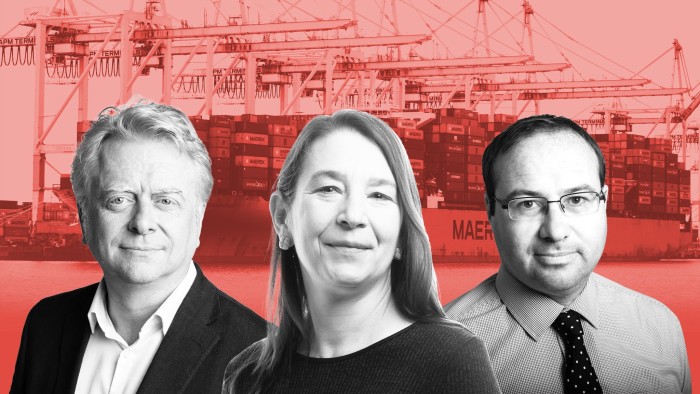Unlock the White House Watch newsletter for free
Your guide to what the 2024 US election means for Washington and the world
President-elect Donald Trump’s resounding victory ignited a stock market rally on Wall Street, though various economists have warned that his protectionist plans could harm global prosperity.
The FT’s Alan Beattie, writer of the Trade Secrets newsletter and column, alongside US financial editor Brooke Masters and EU correspondent Andy Bounds answered your queries on how a Trump administration could transform global trade and financial markets.
The Q&A is now closed, but here are some highlights:
FT reader, student of ideas: Do you think Trump will go for blanket tariffs or will it be a highly selective choice of products? If blanket what does that mean for industries like cars where cross-border transactions are large, before final assembly?
Alan Beattie: On all countries except China he will threaten 10 or 20 per cent tariffs and then go shopping for concessions. He’ll ask each of the countries what they can do for him in terms of buying American products, liberalising their own markets or perhaps totally disconnected issues like funding Nato. He’ll also be lobbied by American companies (as Apple successfully did in his first term) to give them exemptions for importing inputs. This will of course be an opportunity for corruption within his administration, as the pay-offs could be personal as well as commercial. The car industry will lobby to keep the Mexico and Canada supply chains in particular open, but that will largely depend on whether he gets what he wants on immigration.
FT reader, Samtrade: Do you expect Trump’s administration to pursue any industrial policy investments (or subsides) like Bidenomics did, in its attempt to reshore manufacturing jobs? Or will Trump’s strategy be to only use tariffs to raise the prices of foreign goods and make the US domestic manufacturing/production market more competitive?
Brooke Masters: Trump and much of the GOP are huge fans of tax cuts, so I would expect there to be tax credits for R&D, as well as possible incentives for reshoring, industrialisation and capital investment more broadly. In the first term, remember the big tax package had provisions to get companies to stop shifting profits to lower tax jurisdictions. The Trump team would also say that its plans to ease permitting and regulation more broadly is a carrot for local manufacturing and production.
FT reader, Development Economics44: The G7, led by the US in the global north, and the Brics, led by China in the global south, have — in the context of a multipolar world — been seeking to redefine the rules-based international order on trade. In view of Trump’s radical outline on tariffs and his hostility to the WTO regime, how likely is it that Europe — as a tool for managing survival and security competition — begins to align with Brics on trade policy given the latent power of population, growth prospects, and access to key minerals and resources for the green transition?
Andy Bounds: I don’t think this is politically possible. The EU is turning inwards and the goods the Brics produce (if we take out China which has its own issues with the EU) are agricultural, the most highly protected. The EU would like sectoral deals in areas such as minerals instead. Having said that there will be a push to conclude bilateral trade deals such as with Mercosur, Indonesia and the Philippines.
Want more? The conversation happened in the comments section below, so read on.
Read the full article here




